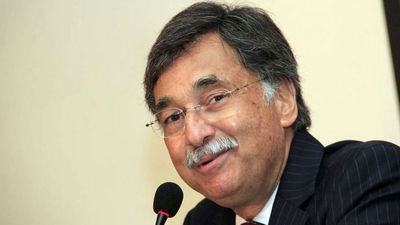Much has been said about First Community Bank in the 15 years that it has been swimming in the niche waters of Islamic banking.
Even more has been said in the past month on social media platforms, particularly on its stability as a lender.
The Nation has established the faces behind the bank, some of whom have been hard at dismissing the social media claims that now threaten to spark a bank run.
Not many know the dangers of such posts the way former Chase Bank boss Zafrullah Khan does. In 2016, similar posts on the backdrop of a bad loans scandal caused panic among clients, whose massive withdrawals eventually forced the industry regulator to place the lender in receivership.
Mr Khan is one of the 29 shareholders of FCB.
When Senior Counsel Ahmednasir Abdullahi and Abdikadir Mohamed dreamed up the idea of setting up a lender exclusive to Shariah banking, they knew that raising the minimum Sh1 billion investment would be a tall order and sent word out to business associates. Mr Khan was among dozens of businessmen that answered the call.
He currently owns a 2.7 per cent stake in FCB, documents from the Business Registration Service indicate. The former Chase Bank board chairman owns 135,059 shares, making him the sixth biggest shareholder. The biggest is a firm owned by businessman Hussein Ali Salad. Opportunity Logistics Services Ltd owns 811,000 shares, which equates to 16.5 per cent.
Ameir Munif Abdallah Nadhi and Said Edha Abdallah Nadhi each have 805,000 shares, making them the joint second biggest shareholders.
Mr Abdullahi owns 325,614 shares, while Mr Mohamed has 75,000 shares. The two lawyers, while board chairman Mohammed Hassan Ebrahim Varvani owns 153,827 shares.
The shareholding list also has Abbabakhar Mohammed Abba with 95,000 shares, Ifyet Mohammed Hassan Varvani (89,733), Omar Shariff Mohammed (62,500), Yasin Jama Ismail (37,500), Yusuf Abdi Adan (35,625), Mansoor Mohamed Hassan (89,733), Yasmin Mohamed Hassanali (89,733), Ali Yasin Farah (186,259), Bishar Abdirahman Hussein (30,000), Yusuf Ali Juma (186,259), Yusuf Ahmed Dahir (186,260), Mohamed Nasir Abdi (26,250) and Dahir Ismael (186,259).
Others are Abdulatif Esajee Kaderbhai with 35,893 shares, Shaffi Mohamed Hussein Bachelani (25,000), Hassanali Kamal Mithwani (35,895), Hassanali Yusuf Mithwani (35,895) Ibrahim Haji Warfa (63,829), Amina Mohamed (89,733), Harunani Suleiman Abdulshakur (73,808), Ahmed Mohamed Bachelani (25,000) and Abdulhamid Mohamed Aboo (107,681).
FCB is one of the best performing tier three banks in Kenya. In 2021 the lender made a Sh602 million profit before tax. It also has an asset base of Sh24.7 billion.
While there is no law that expressly prevents shares ownership across several lenders, Mr Khan’s investment in FCB may have placed him in a precarious position that bordered on conflict of interest.
Chase Bank had an Islamic banking branch that was working to wrestle clients from competitors such as FCB. And the Chase Bank board, led by Mr Khan, was expected to ensure that the lender did exactly that. For Mr Khan, this meant that he was tasked with leading his employer in beating a competitor he had invested in.
Efforts to trace Mr Khan for comment were futile as he has abandoned his known mobile phone number.
The former Chase Bank boss is facing criminal charges for allegedly stealing more than Sh1.6 billion from the lender through bogus loan and bonus schemes.
The Kenya Deposit Insurance Corporation (KDIC) has also filed a civil case against Mr Khan and several other former Chase Bank officials, seeking to recover Sh14 billion.
The two cases gave a rare insight into the wealth of one of Kenya’s reclusive billionaires, as it emerged that Mr Khan had acquired valuable assets in Kenya and abroad.
While his passion for banking saw Mr Khan sink millions into the sector in investments, his time in the industry has largely been a misadventure.
Court records, for example, show that he founded Chase Bank in 1996, and then nicked depositors’ money to obtain licences for a new lender in Somalia 17 years later.
He had paid Sh48 million for licences to set up the Iman Bank of Somalia, but the plans collapsed with Chase Bank’s demise.
The accountant’s Chase Bank dream ended in 2016 when auditors found that several bad loans had been mischievously recorded under the Islamic banking arm and that the move wrongly classified the lender as profit-making.
Chase Bank was forced to republish its results, posting a Sh686 million loss and triggering a run that eventually forced the CBK to place it in receivership.
For now, the FCB shares remain the only profitable investment Mr Khan has left in the industry, as per public record.
There's no story that cannot be told. We cover the stories that others don't want to be told, we bring you all the news you need. If you have tips, exposes or any story you need to be told bluntly and all queries write to us [email protected] also find us on Telegram

